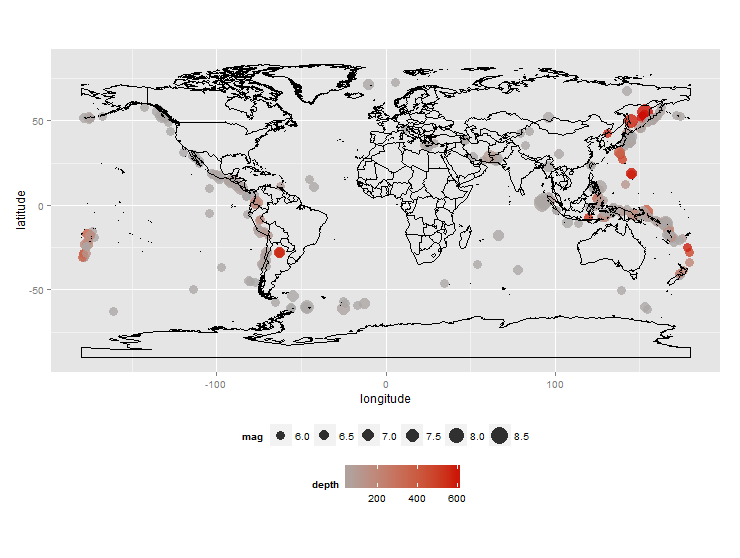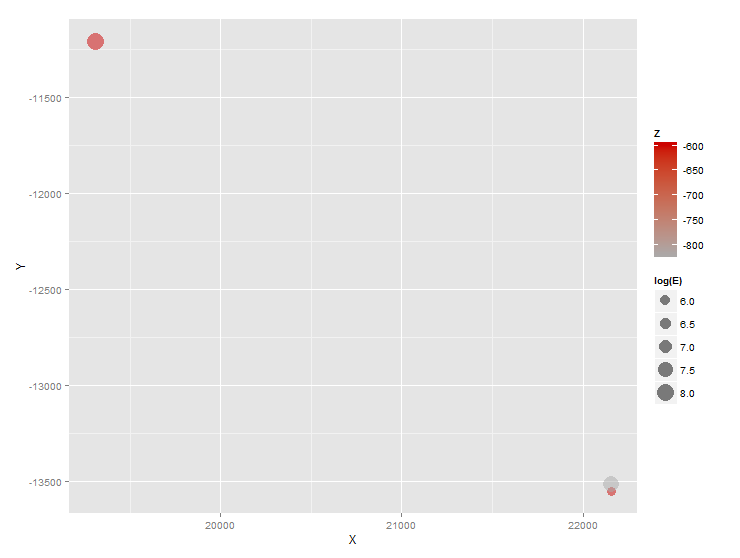[ad_1]
Edit: Updated to use more meaningful data. The original response is at the bottom.
This map…

… can be produced with the following code:
library(ggplot2)
library(maptools)
# grab earthquake data [source: USGS Earthquake Hazards Program]
url <- "http://comcat.cr.usgs.gov/fdsnws/event/1/query"
querystring <- "starttime=2012-01-01T00:00:00Z"
querystring <- paste(querystring,"minmagnitude=6", sep="&") # magnitude >= 6
querystring <- paste(querystring,"mindepth=0", sep="&")
querystring <- paste(querystring,"maxdepth=1000", sep="&") # depth <= 1000 km
querystring <- paste(querystring,"format=csv", sep="&") # return CSV file
uri <- paste(url,querystring,sep="?")
ggQuakes <- read.table(header=T,sep=",", file=uri)
# grab world map [built into maptools package]
ggMap <- fortify(wrld_simpl)
# create map payers
ggp <- ggplot(ggQuakes)
ggp <- ggp + geom_point(aes(x=longitude ,y=latitude ,color=depth ,size=mag), alpha=0.8)
ggp <- ggp + scale_size(range=c(4,8))
ggp <- ggp + scale_color_gradient(low="#aaaaaa", high="#cc0000")
ggp <- ggp + geom_path(data=ggMap, aes(x=long, y=lat, group=group))
ggp <- ggp + coord_equal()
ggp <- ggp + theme(legend.position="bottom")
# render map
print(ggp)
Original Response:
It would be better if you provided more representative sample data, but calling your dataset gg,
library(ggplot)
ggplot(gg) +
geom_point(aes(x=X,y=Y,color=Z,size=log(E)), alpha=0.5) +
scale_size(range=c(4,8)) + # sets minimum and maximum size
scale_color_gradient(low="#aaaaaa", high="#cc0000")
I used a log (Energy) scale because the levels are so different.

2
[ad_2]
solved Bubble plot of mine quakes [closed]